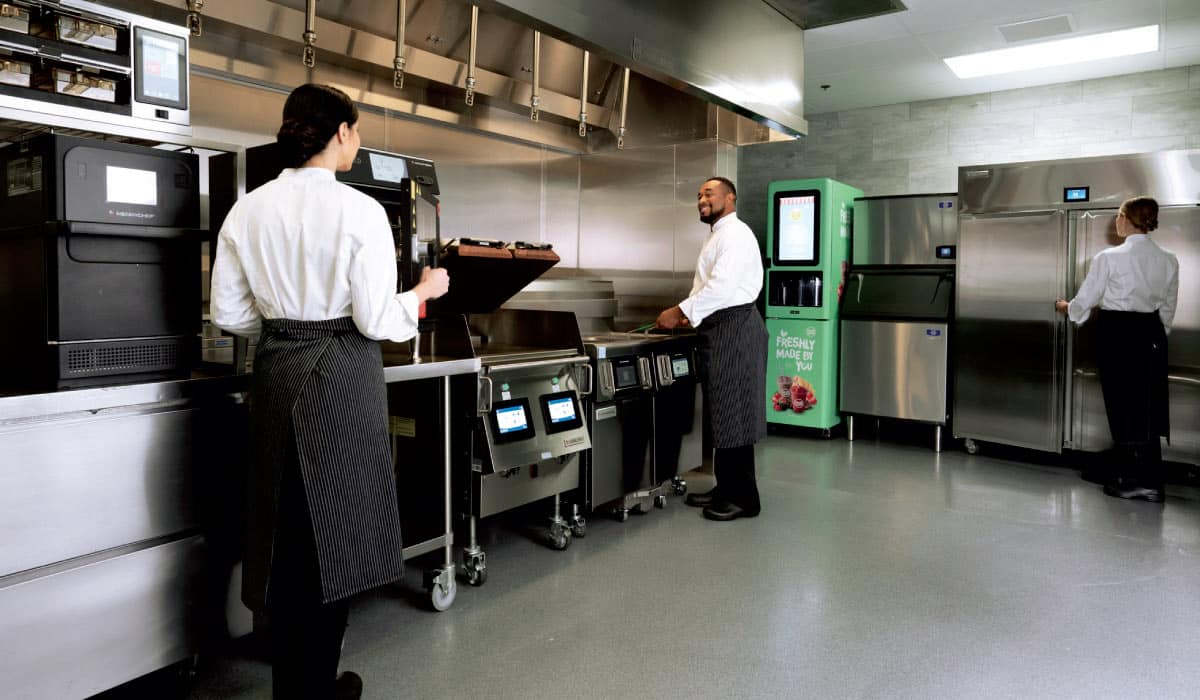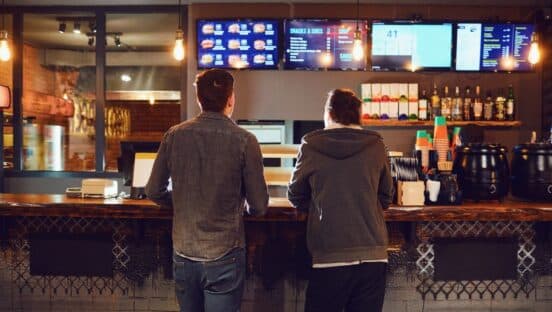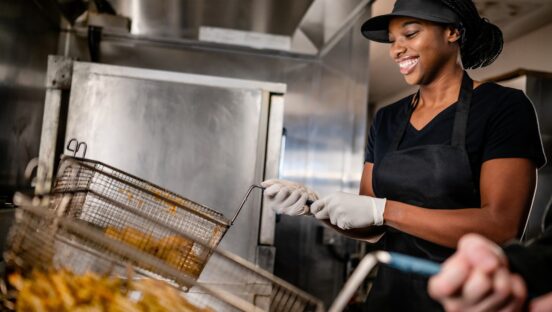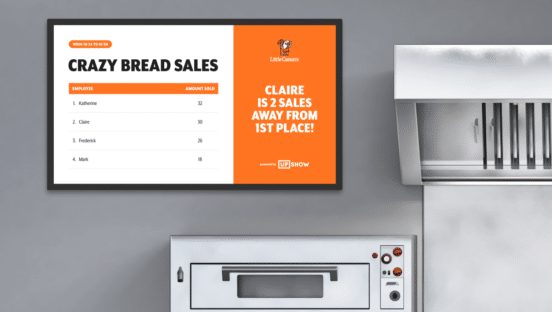It’s a difficult time to own a restaurant, let alone multiple, and franchisees need all the help they can get when it comes to maximizing efficiency in order to help keep labor costs low and profits high. Another challenge the COVID-19 pandemic laid bare for operators is just how pivotal it is to have some agility in the kitchen—a big industry-wide question is how franchisees can build stores and kitchens that are equipped for the future.
One of the ways franchisees are finding success is by employing kitchen technologies that help reduce labor costs while simultaneously improving speed of service as well as the quality and consistency of food.
“Our foodservice partners are facing challenges in the current environment to keep their operations running, serving food and beverage, and keeping their staff and customers safe,” says Mark Richardson, vice president and managing director with FitKitchen, a division of Welbilt. “The aim of FitKitchen is to collaborate with our industry partners to identify the needs of today’s commercial kitchen spaces, provide answers to the big challenges in today’s environment, and build for the future growth of tomorrow.”
The FitKitchen team helps franchisee partners build modern kitchens with a smaller footprint, equipped with connected smart ovens that aggregate data and help inform upper management in areas like labor, cleaning and maintenance, recipe consistency, and cook times. It’s a holistic approach that begins with the FitKitchen team collaborating with brand leaders to see exactly what their goals are.
“Clearly identifying and understanding the goals of our customers ensures alignment for meeting the objectives,” says Michael Anderson, director of Global Systems Integration, FitKitchen. “Our client’s goals have varied from 50 percent reduction in footprint while doubling throughput, to a 20 percent reduction in labor and capital cost while increasing throughput 20 percent.”
The next part of the process involves field research, facility assessment, and interviews with management and leadership. The FitKitchen team looks at the brand’s menus, ingredients and product mix, and uses the field research to help draw up staff movement patterns. The FitKitchen team then starts exploring concepts which are ultimately field tested and analyzed before being put into practice. Before long, the brand is well on its way to achieving those goals that were drawn up in the first place.
“It is our systematic approach to bringing proven best practices that address business-specific needs that set us apart from the competition,” Richardson says. “One of the things franchisees and operators love about our solutions is that they eliminate the ‘I think’ and ‘I feel’ assumptions that surround big decisions. Instead we leverage data based on facts that allows us to reduce the kitchen footprint while increasing the output with more efficient labor.”
To find out more about how you can leverage data and make your kitchens more efficient, check out www.welbilt.us/FitKitchen.













